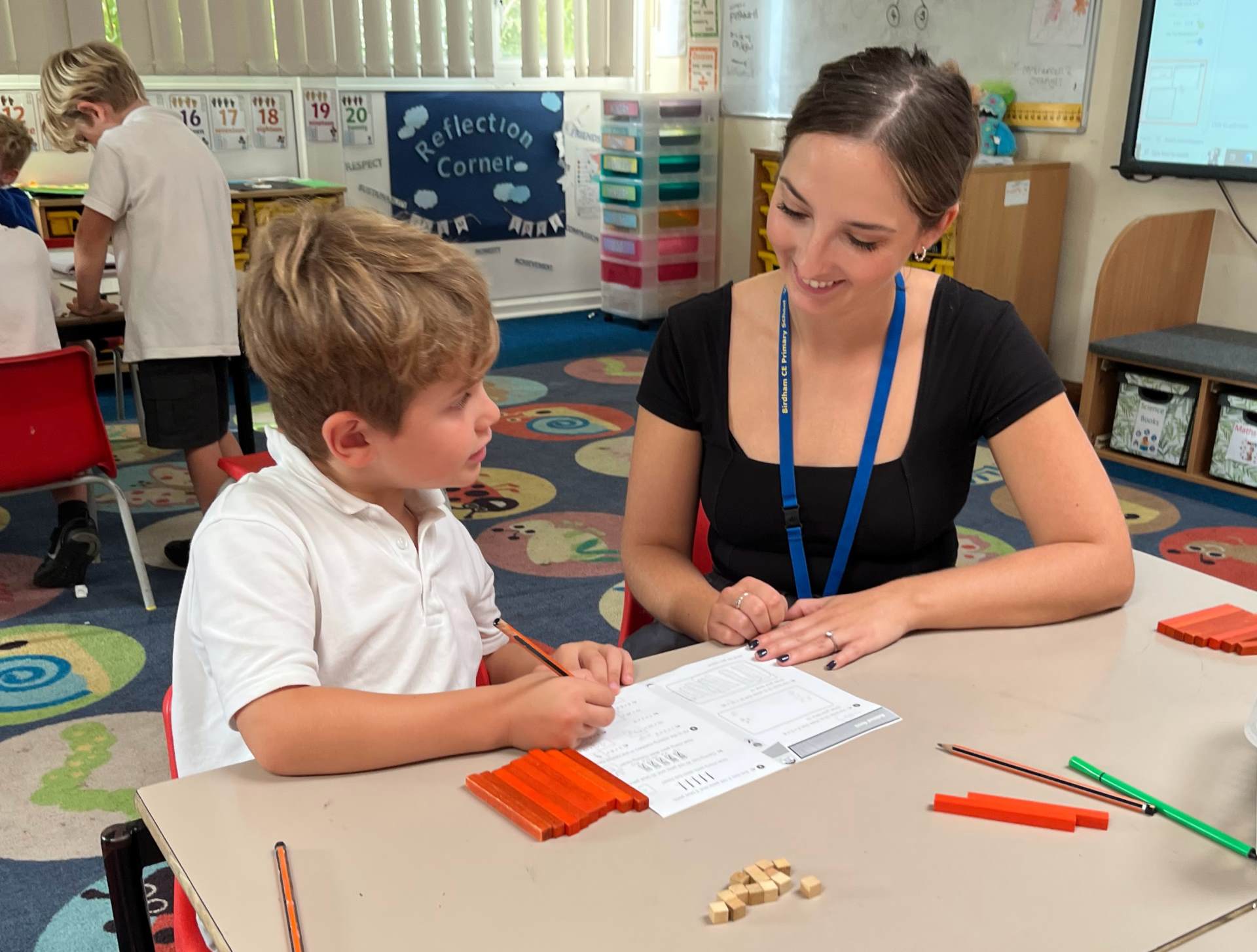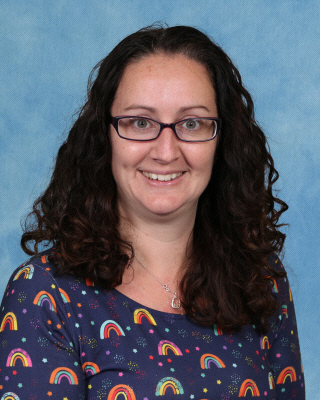Special Educational Needs
'Local Offer' for Children with Special Educational Needs and disabilities
All schools are required to publish and review information for parents and carers about the support and provision for children with special educational needs or disabilities.

1. How does the school know if children need extra help and what should I do if I think my child has special educational needs?
We are committed to early identification of special educational needs to ensure your child remains included in all areas of the curriculum. We use a graduated response to meeting their needs in line with the 2014 SEND code of practice which outlines four areas of special educational need that include a range of difficulties and conditions
- Communications and interaction.
- Cognition and learning.
- Social, emotional and mental health.
- Sensory and/or physical.
A range of evidence is collected through school assessment and monitoring arrangements. If this suggests that your child is not making the expected progress, the class teacher will consult with both you and the school SENCO (Special Educational Needs Coordinator) in order to decide whether additional or different provision is necessary. In addition to the usual assessment, there are specialist assessment tools which we use to explore the reasons for any difficulties. There is no need for pupils to be registered or identified as having special educational needs unless the school is taking additional or different action.
If you have a concern about your child’s progress or believe they have a special educational need, this should be first discussed with the class teacher. Additional assessment or support can then be discussed with the SENCO. We will always work with you to ensure that your child is not disadvantaged in any way by their SEN if it is at all possible.
2. How will the school support my child?
Our Governing Body ensure that as a school we make appropriate provision for all pupils identified as having special educational needs. The named SENCO for the school is Mrs Emily Ellis. A member of the Governing body, Kate Watson, takes particular interest in special educational needs, although the Governing Body as a whole is responsible for making provision for pupils with special educational needs.
The school may support your child in a variety of ways depending on their individual needs. The first way is within the class, where learning tasks will be matched to your child’s needs and will be overseen by the class teacher. An additional provision may be through targeted small group work that takes place out of the classroom. Your child’s targets will be set by class teacher in collaboration with the SENCO. A further level of provision may involve your child working individually with a member of staff to meet specific targets. These targets may be set out in his/her Personal Intervention Plan (PIP) or as recorded on the school’s Provision Map. These detail the support that is additional to or different from that provided as part of the School’s usual adapted curriculum.
3. How does the school review the effectiveness of the provision made for pupils with SEND?
Based on a range of assessments, additional support is provided within the school day. Interventions are monitored and reviewed termly by the SENCO and Headteacher, with class teachers and teaching assistants so that a cycle of ‘Assess, Plan, Do and Review’ is established.
The views of pupils and parents are also sought in planning and reviewing PIPs so that school and home can work together to maximise learning.
4. How will the curriculum be matched to my child’s needs?
Our school strives to provide an engaging and exciting curriculum for all children. Your child’s class teacher will plan for the variety of needs in the classroom by providing appropriate tasks and achievable outcomes to consolidate and extend children’s learning.
To ensure that every child with additional needs receives the correct amount and type of support, the following graduated approach is in place:
Early Intervention
At this stage, the teacher has identified a low-level need in a specific area (e.g. English). Sometimes we would describe children at this stage as needing a ”boost”, which may be as simple as being heard read more in school and at home. The child will receive support and monitoring within normal classroom activities and will not need individual targets. Alternatively the child might be invited to receive 1:1 support from a Teacher or TA during the school day. Children at this stage are supported in class groups by the Teacher or LSA, and sometimes by parent helpers.
How will I know?
Your child’s teacher may ask you to come in at an early stage to discuss your child’s progress. However, it is more likely they will discuss this with you during the usual course of parent meetings. The teacher will probably not even mention “Early Intervention”, as it is more useful for you to be aware of your child’s needs, rather than be baffled by terminology! The teacher will tell you what is being done in school, and is likely to offer suggestions as to how you can help at home.
SPECIAL NEEDS SUPPORT (SEN SUPPORT)
Children who are experiencing significant and on-going difficulties with one or more areas of their education, (despite the “boosting” support given at the early intervention stage), will move onto further levels of support. Your child may have a PIP drawn up for them by their teacher and TA, which will consist of two or three small targets to work towards. Your child will receive support in the form of a small focused group, one to one (when available), as well as many other opportunities to work on their area of need.
“How will I know?”
If your child requires a PIP, the teacher will ask you to come and share it as soon as it has been written. Your child will be involved as much as possible in the writing of the PIP so it is in a ‘child friendly format’. You will be invited to come and discuss your child’s PIP and progress each term. Your opinions are most welcome and will always be taken into account. You will be given a copy of the PIP to keep at home and refer to, and the teacher will give suggestions of how you can support your child at home.
FORMAL STATUTORY ASSESSMENT (EDUCATION AND HEALTH CARE PLAN - EHCP)
In a few circumstances, a child’s needs may be severe and on-going and they may require the assistance and guidance of the Local Authority to assess their needs more formally. Parental involvement at this stage is very important and full guidance will be given from the SENCO at every stage of this procedure.
5. How will I know how my child is doing and how will you help me to support my child’s learning?
Each class has medium term planning on their class pencil which gives an overview of the term’s work. All parents can sign up to the free Class Dojo app where each class teacher sends photos, videos, messages, or badges their child has earned each week.
In addition to the regular parent meetings, you will be kept regularly informed of your child’s progress by agreeing and sharing your child’s PIP targets with the class teacher. This will identify the next steps for your child to make progress and how the school and you can help them. Progress will be monitored and reviewed regularly to ensure that both you and your child can express your views and are fully involved in decisions. Regular contact may be communicated through a home/school link book, emails, telephone calls or meetings, and the SENCO will organise termly drop in sessions to discuss your child's progress if you so wish.
6. What support will there be for my child’s overall well-being?
We aim to develop children’s emotional and social well-being in partnership with parents and carers. In some cases this may be provided by specialist support from our ELSA or Learning Support Assistants. They support parents and children in addressing the needs of learners who require assistance in overcoming barriers to learning in order to achieve their full potential. Healthcare plans and pastoral support plans can be used to meet specific needs. These plans are created in collaboration with school, parents and pupil, and they are monitored and reviewed at agreed intervals.
7. What specialist services and expertise are available at the school?
External support services play an important part in helping the school identify, assess and make provision for children with SEND. These include:
- Regular visits from the nominated Educational Psychologist for the school.
- Seeking advice from specialist advisory teaching services for children with Sensory impairment or physical difficulties or from services like Occupational Therapy Service.
- Advice and support from the Speech and Language Therapist and contributions to the reviews of pupils with significant speech and language difficulties.
- Advice and support from the Community Mental Health Liaison Service and local Child and Adolescent Mental Health Service (CAMHS) for children with emotional and behavioural needs.
- Advice and support from the school nurse and community paediatrician (Child Development Centre or CDC).
- Targeted support for families on a variety of issues through the Outreach service.
- Referral to the Education Welfare Officer service.
The local offer has details of local services, events and information for children and young people aged 0 - 25 years who have special educational needs or disabilities (SEND).
This is also the link to The West Sussex SEND Information, Advice and Support Service which provides impartial information, advice and support to parents and carers of children who have special educational needs and/or disabilities.
https://westsussex.local-offer.org/
Before the school make any referrals, we will always gain your permission first.
8. What training are the staff supporting children with special educational needs having?
We make an annual audit of training needs for all staff taking into account school priorities and personal professional development. Particular support is given to new members of staff and to training that addresses children’s specific needs. The SENCOs of each school within the Chichester Locality meet together each term to share good practice and this is a strength of our group of schools.
9. How will my child be included in activities outside the classroom including school trips?
It is the school’s policy to enable every child to participate as fully as possible in all elements of the wider curriculum. We ensure that all children attend school trips and residential visits with support as appropriate. Where necessary, the school will meet with parents and carers to discuss individual needs prior to any visit or activity.
10. How accessible is the setting?
Our school has an Accessibility Plan which is reviewed regularly. As part of this review, we ensure that the school environment is accessible for all children, including those with physical and sensory needs or where English is not a first language. Our single storey school building is wheelchair friendly, but if you or your child have any other disability, please enquire so we can see if we can make any reasonable adjustments. As a voluntary controlled school, the Local Authority remain the admissions authority, and determines the allocation of all pupils with SEND.
11. How will the school prepare and support my child to join the school and transfer to the next stage of education or life?
 When you apply for a place for your child at the school, we encourage you to share your concerns about your child’s special educational needs or pass on information about any specialist support or agencies already working with you. We will contact any previous educational establishments for relevant information. Any practical arrangements can then be discussed and put in place.
When you apply for a place for your child at the school, we encourage you to share your concerns about your child’s special educational needs or pass on information about any specialist support or agencies already working with you. We will contact any previous educational establishments for relevant information. Any practical arrangements can then be discussed and put in place.
At the end of the school year or if your child moves to another setting, the relevant staff communicate to pass on information and ensure that transition arrangements are in place.
12. How are the school’s resources allocated and matched to children’s individual special educational needs?
The school receives money on an annual basis to support provision for special educational needs. This is based on the number of pupils on roll who are on the ‘SEND register’ and this varies from year to year. The money is allocated annually by the Governing Body when setting the school’s budget. It is used to pay for staffing and resources which support children with special educational needs throughout the school.
On top of this resource, there may be additional funding from the Government and West Sussex County Council to support individual children on specific programmes. This includes ‘Pupil Premium’ money and additional funds for children with an Education Health Care Plan.
Arrangements for the admission of disabled pupils, and facilities we provide to support them, as well as how we prevent any disabled pupils from being treated less favourably than other pupils is contained within the accessibility plan at the bottom of this page.
13. How is the decision made about the support my child will receive?
Every child’s needs are carefully assessed and decisions are then made based on the ability of a child to access the curriculum and make progress. The school SENCO will work closely with you and all staff to discuss relevant interventions, adult support and advice from specialist services to make best use of available resources. We regularly assess the impact of any additional support and resources and report children’s progress to parents.
14. What do I do if I have a complaint?
We always recommend in the first instance, to discuss the issue with the class teacher and  the SENCO. The Headteacher is also available if necessary. If there is still no resolution than please note that arrangements for handling complaints from parents of children with SEND, about the school’s support are within the scope of the school’s complaints procedure. This procedure is on our website under the 'Policies' section of our 'Key Info' - the red pencil.
the SENCO. The Headteacher is also available if necessary. If there is still no resolution than please note that arrangements for handling complaints from parents of children with SEND, about the school’s support are within the scope of the school’s complaints procedure. This procedure is on our website under the 'Policies' section of our 'Key Info' - the red pencil.
Where parents have specific complaints about the Education Health and Care Plan (EHCP) procedure, or about the content of their child’s EHCP, they should be referred to the LA. This is in accordance with the SEND Code of Practice.
15. Who can I contact for further information?
 West Sussex Local Authority have a dedicated website, https://westsussex.local-offer.org/ where you can find out about their ‘Local Offer’ The West Sussex Local Offer helps you find information about local services, support and events for children and young people aged 0 - 25 years who have special educational needs or disabilities (SEND).
West Sussex Local Authority have a dedicated website, https://westsussex.local-offer.org/ where you can find out about their ‘Local Offer’ The West Sussex Local Offer helps you find information about local services, support and events for children and young people aged 0 - 25 years who have special educational needs or disabilities (SEND).
For any school-specific issues, the first point of contact will always be your child’s class teacher.
The SENCO at our school is Mrs Emily Ellis, and she is available for any follow up, guidance, advice or support. The best way to make contact is to email her on: senco@birdhamprimary.co.uk
Click on the following links to view our SEND policy, Accessibility Plan, and the DfE guide for parents and carers.
Accessibility Plan 2023-25.pdf
DfE Special educational needs and disability - A guide for parents and carers

